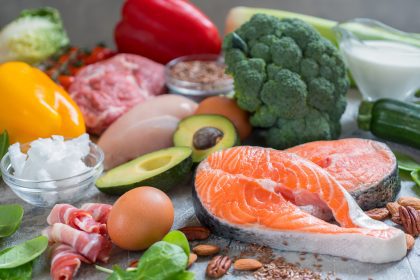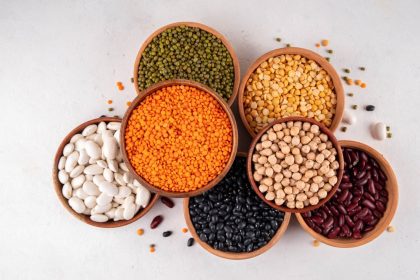Why these humble kitchen staples deserve a spot on your plate
In the endless quest for quality protein sources, chicken breasts and salmon fillets often steal the spotlight. But sitting quietly in your refrigerator door lies an unsung hero that nutritionists consider one of nature’s most perfect foods: the humble egg.
These oval powerhouses pack more nutritional punch than most people realize, delivering complete proteins and essential nutrients at a fraction of the cost of premium cuts of meat. Yet despite their accessibility and versatility, eggs remain criminally underrated in the modern American diet.
The Protein Breakdown: Size Matters
Not all eggs are created equal when it comes to protein content. The size classification system, determined by weight rather than visual appearance, directly impacts how much protein lands on your plate.
A standard large egg delivers approximately 6 to 7 grams of high-quality protein, representing about 12 percent of the daily recommended intake for most adults. But the protein scale shifts depending on which size you choose:
- Small eggs contain 5 grams of protein
- Medium eggs provide 6 grams of protein
- Large eggs offer 6 to 7 grams of protein
- Extra-large eggs deliver 7 grams of protein
- Jumbo eggs pack 8 grams of protein
The protein distribution within each egg follows a surprisingly even split. The yolk contributes roughly 2.75 grams, while the white provides about 3.6 grams. This balance means you can’t simply discard the yolk without sacrificing nearly half the protein benefits.
Quality Over Quantity: Why Eggs Excel
What sets eggs apart from other protein sources isn’t just quantity—it’s quality. Eggs contain all nine essential amino acids that the human body cannot produce on its own, earning them the designation of “complete protein.” This biological completeness puts them in the same category as meat, fish, and dairy products.
Interestingly, while premium chicken feed can enhance the vitamin and mineral content of eggs, it doesn’t boost protein levels. The protein content remains remarkably consistent regardless of what the chickens eat, making even conventional eggs a reliable protein source.
Creative Egg Integration: Beyond Breakfast
The versatility of eggs extends far beyond morning scrambles and weekend omelets. Modern cooks have embraced eggs as all-day protein boosters, incorporating them into meals that span cultures and cuisines.
Consider these globally-inspired approaches:
- Shakshuka transforms eggs into a North African feast with spiced tomato sauce
- Baked egg muffins create portable protein for busy schedules
- Egg-topped hash combines sweet potatoes and beans for hearty sustenance
- Egg-fried rice offers a healthier twist on the takeout favorite
- Avocado deviled eggs modernize the classic appetizer
- Grain bowls topped with eggs create satisfying, nutrient-dense meals
- Seasoned hard-boiled eggs make sophisticated snacks
- Migas brings Tex-Mex flair to breakfast with scrambled eggs and tortillas
- Quiche provides endless customization possibilities
- Korean-style marinated eggs add umami depth to simple dishes
Cultural Significance and Health Considerations
Traditional cuisines have long recognized eggs’ nutritional value. Soul food traditions feature eggs prominently in dishes like deviled eggs and breakfast scrambles, recipes that can be easily adapted to meet contemporary health goals without abandoning cultural heritage.
For individuals managing diabetes or cardiovascular conditions—health challenges that disproportionately affect certain communities—eggs offer particular benefits. Their high protein content helps regulate blood sugar levels and promotes satiety, potentially supporting weight management goals.
Economic and Sustainable Advantages
In an era of rising food costs, eggs represent exceptional value. They deliver premium protein at a fraction of the cost of meat alternatives, making them accessible to families across all income levels. A dozen eggs often costs less than a single chicken breast while providing comparable protein across multiple meals.
For environmentally conscious consumers, eggs also present a smaller carbon footprint than most animal proteins. Local egg producers and community-supported agriculture programs offer opportunities to source high-quality eggs while supporting regional food systems.
The Bottom Line
Eggs deserve recognition as one of the most efficient, affordable, and nutritious protein sources available. Whether you’re a busy professional seeking quick meal solutions, a parent trying to feed a family on a budget, or someone focused on optimizing their nutritional intake, eggs offer unmatched versatility and value.
The next time you’re planning meals or reaching for a protein source, consider giving eggs the attention they deserve. Your body—and your wallet—will thank you.
















